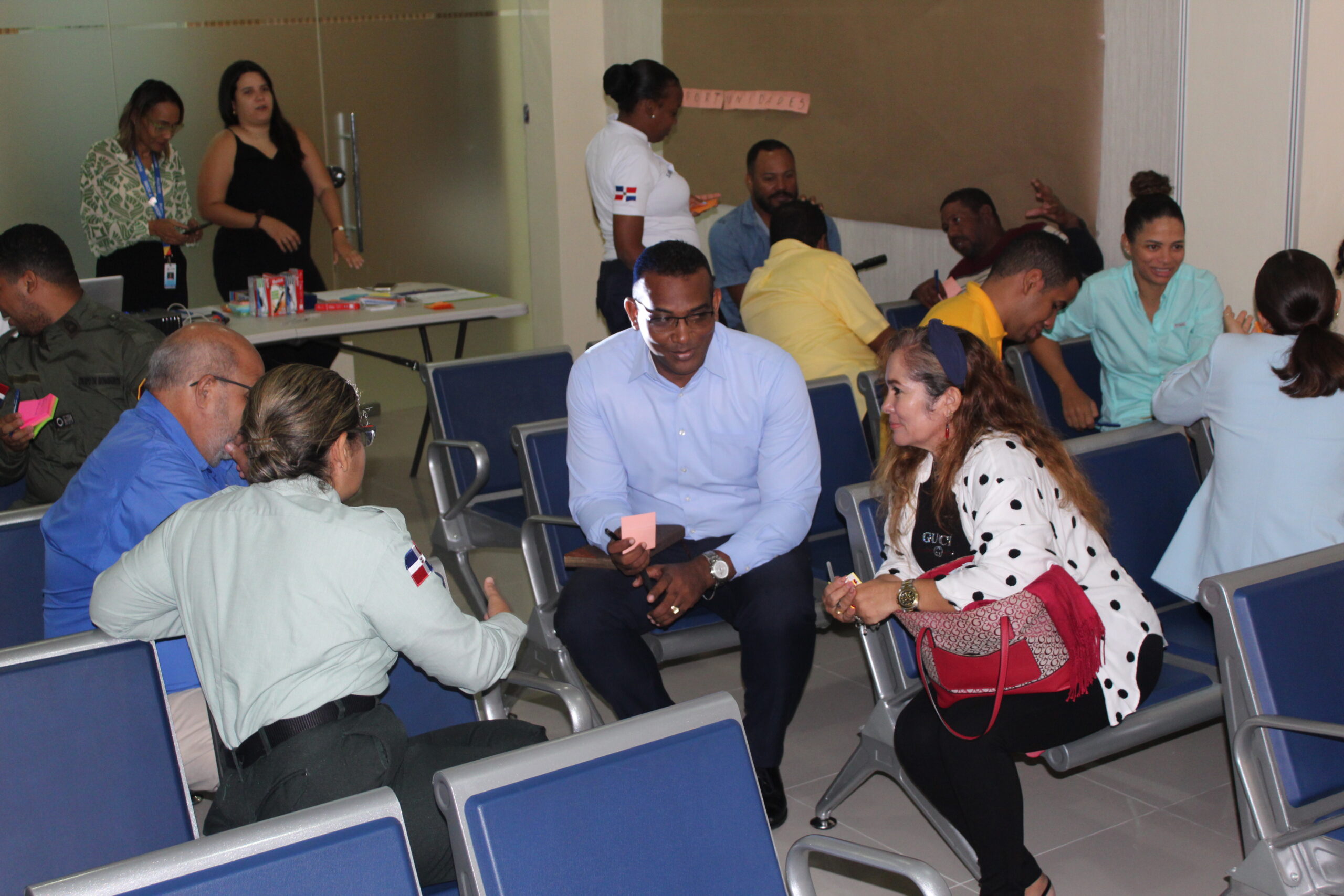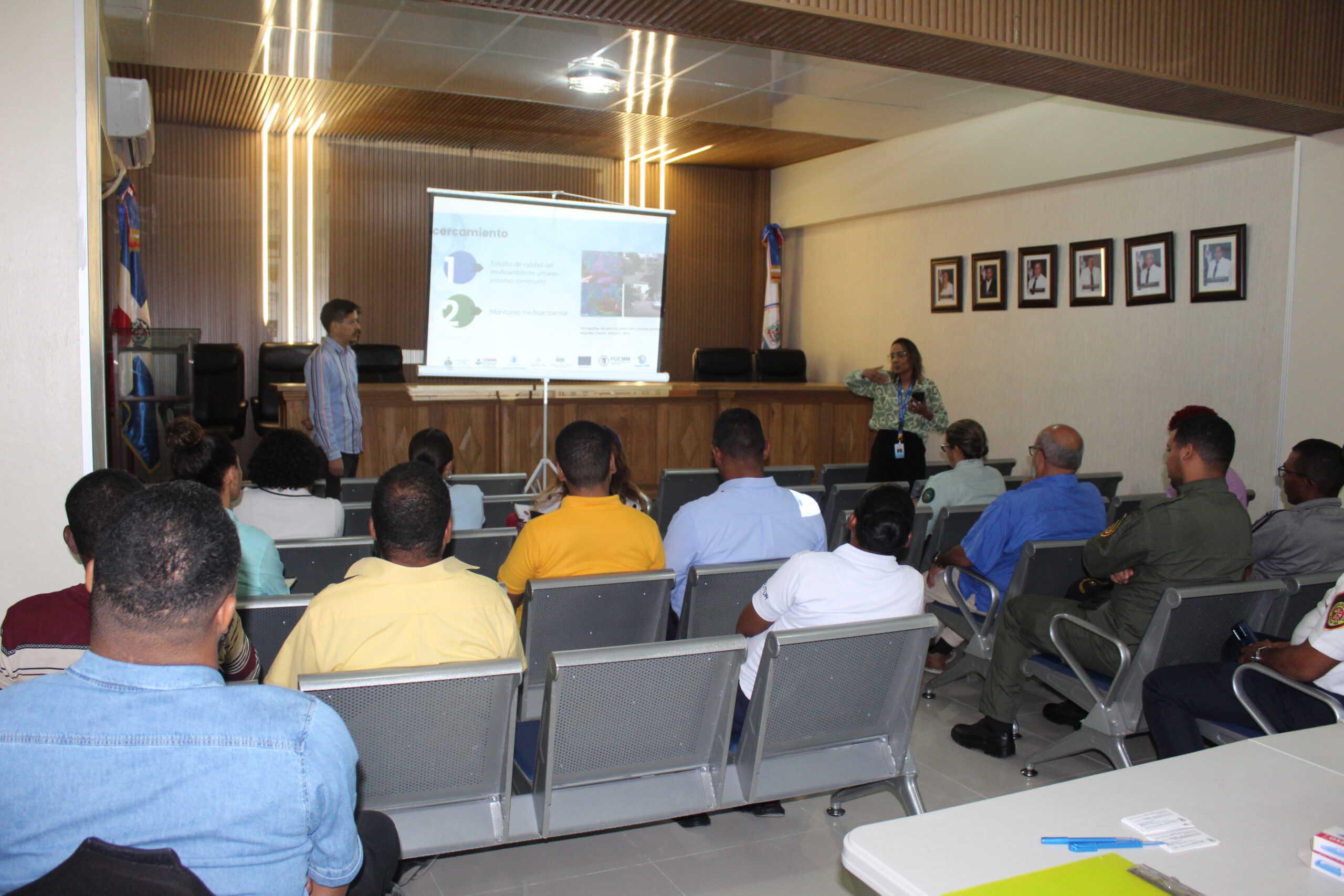Understanding the City’s Perspective
On May 7th, the AdaptccDR team relocated to the city of Bayahíbe to carry out its first Sensitization Workshop in collaboration with the key stakeholders of the community. The workshop was held in the chapter house of the Bayahibe town hall. The workshop saw the participation of various representative entities across all relevant project areas, such as the Bayahíbe Tourist Cluster, the Fire Department, and the National Police, councilors, associations of tour operators and owners of tourist transport vessels, key environmental actors like the Dominican Foundation for Marine Studies (FUNDEMAR), the Bayahíbe Neighborhood Board, representatives from Hotel Catalonia and the Legal Office of Bayahíbe, as well as the group of local traders. Additionally, there was participation from religious institutions like the Jehovah Sabaot church. From the AdaptccDR team, Dr. Orisell Medina, Víctor Bohórquez, and Arq. Aileen Bautista were present.
The workshop began with an explanation of the main objectives of the AdaptccDR project, highlighting the importance of community participation and integration in Bayahibe to achieve a result more aligned with the city’s needs. During the initial presentation, an intriguing fact that impacted the attendees was that, despite Bayahibe having a fixed population of approximately 2,260 inhabitants, it receives around one million tourists annually, representing 424 times the number of inhabitants as a floating population. This information underscored the city’s significant growing tourism development and the extensive use of hotels and Airbnbs, which creates considerable pressure from an environmental and resource perspective, also linked to the effects of climate change.
The second part of the workshop involved the “Many Words” activity, where participants identified the city’s current issues, specifically related to climate change. Individually, each participant expressed the main environmental problems they believed directly affected both the tourism and economic development of Bayahibe, focusing on climate-related issues. Later, participants joined teams to discuss and advocate for the most relevant problems. Among the topics discussed was the lack of awareness about keeping public and tourist places clean. City councilor Gelen Brito highlighted how rising temperatures endanger coral survival and economically impact merchants due to increased electricity rates. One participant mentioned the irresponsible construction of tourist buildings and the lack of reforestation, affecting the city’s green cover. The importance of the participation of key actors in tourism and environmental matters, as well as the need for oversight and proper behavior in caring for the city’s infrastructure, was also discussed.


After a brief break, the third part of the workshop focused on a SWOT analysis. Having identified the main problems, participants collectively categorized Bayahibe’s strengths, opportunities, weaknesses, and threats related to climate. Each participant could contribute their ideas in any of the categories.
Among the strengths, tourism was identified as the key element for the city’s development, highlighting natural resources such as parks and beach access. Opportunities recognized included the city’s capacity for sustainable development through education and creating plans to protect the coastline, currently at risk from climate change. The integration of existing green areas to increase the city’s green cover was also highlighted, as well as the implementation of ideas proposed during the workshop.
On the other hand, participants pointed out the lack of institutionalization of relevant actors and the absence of urban planning aligned with the city’s needs. Poor environmental education was also identified as a significant weakness. Among the threats mentioned were severe pollution, excessive use of plastics, coastal erosion, and biodiversity loss. The need to protect mangroves, crucial for defense against atmospheric issues like storms and hurricanes, was emphasized.
The workshop concluded successfully, with a wide range of issues identified by the city’s residents. Many participants appreciated the creation of such workshops, which allowed them to recognize the problems and connect with different actors to create a comprehensive action plan. They also valued the attendance of the AdaptccDR team in identifying, using digital technologies, the main actions to address the climate challenges Bayahibe may face. This workshop exceptionally highlighted community collaboration and the importance of a better approach to action against climate change.

